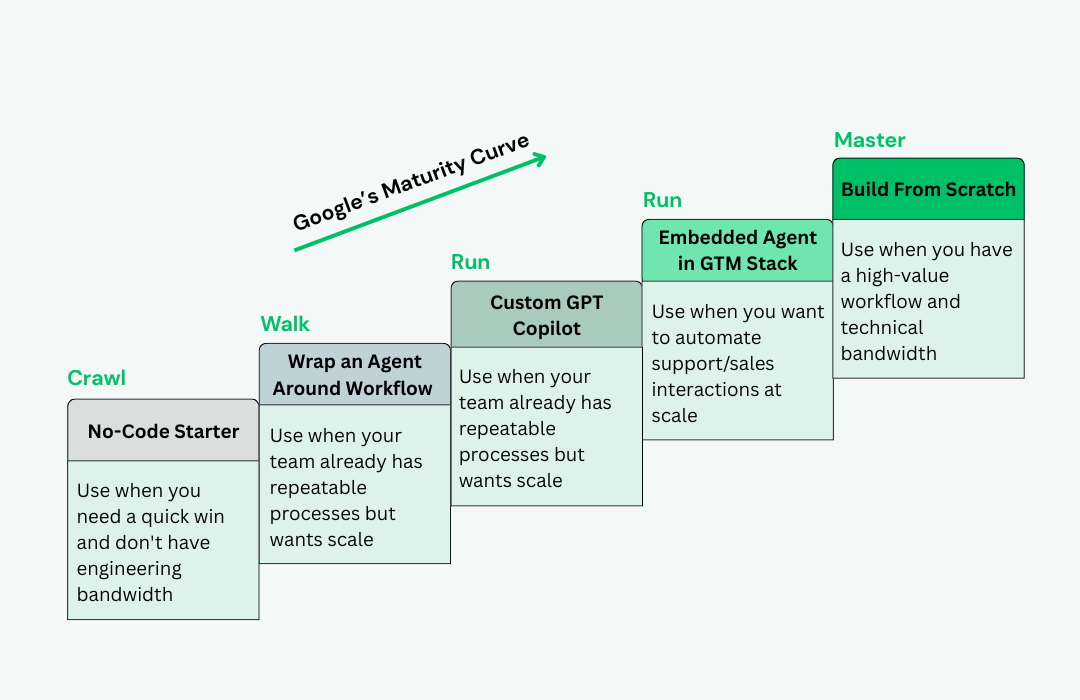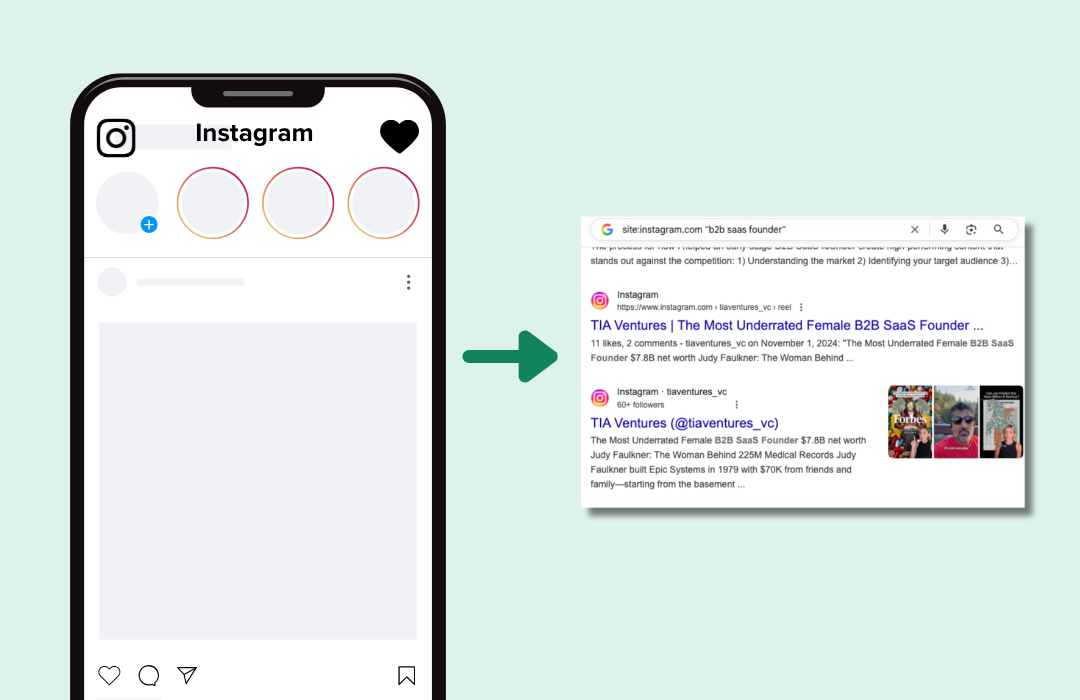There are many different types of people you come across in your sales career. Founders are a unique animal, but they aren’t all built the same way. This makes selling to founders a bit more nuanced than other personas.
But founders are the final decision-makers at their company — so working directly with founders is a great way to cut through the noise and sell directly to the person who will be signing the check.
Take my word for it: I’m a (co)founder myself. I started a marketing analytics company which I sold in 2020. Shortly after that, I co-founded The Quota, a newsletter for salespeople. And before that, I worked with tech startup founders across almost every vertical imaginable at an app development studio.
Admittedly, it’s easier to sell to the founder of a target company as a founder yourself. There’s a certain feeling of camaraderie and understanding built into the relationship.
But fear not! As a non-founder salesperson, there are ways you can still build this level of trust with founders — and close more high value deals.
I’ll go over some ways to communicate and sell to founders. The following tips can help you in your cold prospecting, email comms, and the first discovery call with a founder.
Tips for selling to founders
Mirror their writing style
A lot of founders skip formalities in their emails. They’re less likely to use lengthy formal openings or closing to their emails (ex: ‘I hope this email finds you well’, ‘thanks for your time’).
Keep your email short. It’s of course risky to cold email a founder with an informal style, but it could set you out from the pack of corporate sellers who sound like robots.
Related: 7 ChatGPT Prompts for Selling to the C-Suite
I recommend researching the prospect and seeing how they communicate on Twitter or LinkedIn. Do they talk like a bank executive or do they talk more like a startup founder? If it’s the latter, it’s worth trying a less formal email style that could cut through the noise.
You could keep your first communications formal. But if they respond with 1-2 informal sentences that read more like a text message than an email, you should mirror their communication style. By doing so, you show respect for their time by not forcing them to read unnecessary empty greetings and you start building rapport.
Use the founder for an intro
A lot of times, the right person for you to talk to isn’t the founder, but one of their team leads. When cold emailing a founder, ask if there’s a better person on their team to talk to about your product/solution, like a team lead.
(Bonus points if you’ve researched who this person is at the company and call them out by name).
You’ll get a much warmer intro coming from the founder than you would if you directly cold emailed the team lead. An added bonus, the final decision maker (the founder) is already aware of you and your product.
Related: 11 Rules for Warm Email Introductions
Unconventional email timing
Try the weekend email or after hours email.
Founders are incredibly busy people and are often working late into the night and on the weekends. If you pop up in their inbox at a time when they are typically less busy, you may have a better chance of getting a response. This can be a signal of your work ethic and build trust.
Just make sure you’re not scheduling your email. If they respond, you should be ready to keep the conversation moving right away.
Related: 23 Powerful Email Call to Action Examples & How to Use Them
Do the math for them
Don’t make them think too hard. Founders are dealing with an endless amount of tasks, decisions, and notifications throughout their day.
Don’t talk to them about a vague value prop about increasing revenue, acquiring customers, or ROI from time savings. These are all important levers that they are interested in, but to pique their interest and get a response in the inbox, do the math for them. Do some research on their product and customers, explain what kind of ROI they can expect with hard numbers.
If you can communicate logically in a few sentences how you can improve their business by “X number” you’re more likely to get a response.
Respect the founder’s time (keep it short)
This may seem obvious, and it’s not exclusive to founders, but keeping your emails short shows you know how to communicate value concisely and shows respect for their time. When meeting with founders, skip the small talk unless it’s hyper relevant.
Don’t bring up their alma mater unless you went there too. Don’t bring up the weather or their weekend plans. If they’re answering your email or spending their time on a call with you, it’s because they’re looking for a solution — not a friend.
Don’t use buzzwords
Founders tend to have strong BS detectors. If you use a lot of corporate speak and buzzwords they’ll probably tune you right out. Keep it simple and talk more like a human. Talk to them like you would with a friend, not your boss.
Don’t say ‘new acquisition channels to drive more conversions.’ Instead, say ‘get more customers.’
Don’t say ‘how are you currently optimizing your GTM process?’ Instead, say ‘Could X make your life easier?’
Talk about their customers
Founders live to serve their customers. Founders are typically more customer-obsessed than other personas you’re selling to.
When you mention their customers, their ears will most likely perk up. If you can connect the dots on how the solution you’re selling can help make their customers’ lives easier, you can increase your chances of closing the deal.
This also wins you points because it shows you’ve done your research not just on their company, but how their company serves their customers.
Talk about their competitors
Founders are competitive people by nature. They have deep knowledge about their competitors. They understand their competitors’ strengths and weaknesses. They understand where their own company stacks up compared to different competitors.
By doing your research on their competitors, you can have a leg up and show the founder you’ve done your research — and you can help them get (or stay ahead) of their competition.
I’ve found two ways to pull the competitor lever when selling to a founder:
1) Name-drop a competitor. This works best in a cold email to get their attention. This shows that you’ve done at least a bit of research on their company and sets you a part of all the other salespeople in their inbox.
If one of their competitors is already a customer of your company — don’t be shy to mention it. This creates a sense of FOMO that they may be missing out on something that their competitor is already doing.
2) Ask what they admire about their competitors. This works best on a call. Ask them what some things their competitors are good at, that they feel like they aren’t doing as well at their own company.
This is a chance for you to understand some problems that they’re looking to solve and areas where they’re looking to improve. If you can work backwards from here to align the areas they mention with a value prop that your solution offers, you can get them to buy-in much quicker.
Related: 1 Email, 2 Takes: How to Talk About Competitors
Conclusion: No BS and a clear ROI
Learning how to sell to founders can be another powerful tool in your belt as a salesperson and help you close more deals. This is especially true if you’re selling a product or service to SMBs.
Founders aren’t so different from the other personas you sell too. After all, they’re also professionals trying to move their business forward. But they do often have a common language and approach when it comes to business. They tend to have strong BS-filters and often won’t talk to a salesperson if they can’t see a clear ROI for their time.
Once you understand this, and practice the steps above, you’ll be able to better connect with founders — and breeze by your quota.
Selling to a specific persona? Check out:




 Edited by Kendra Fortmeyer @ Sales Hacker 2023
Edited by Kendra Fortmeyer @ Sales Hacker 2023


